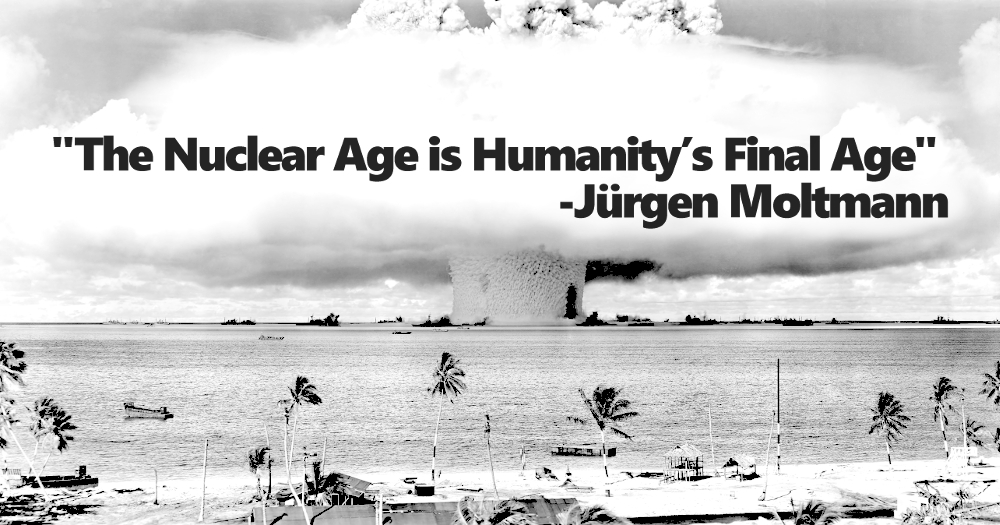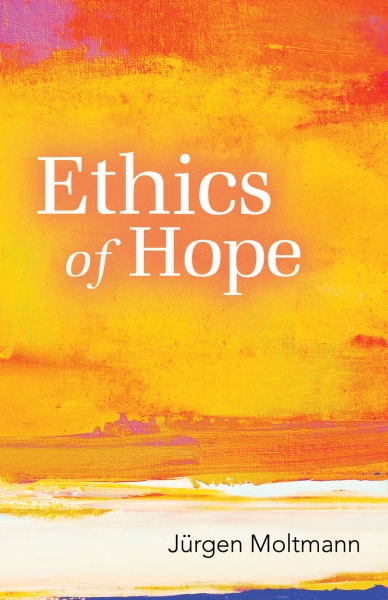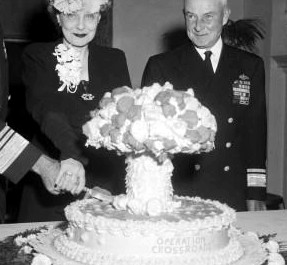 In Jürgen Moltmann's The Ethics of Hope, he writes that "the Nuclear Age is the final age of Man" and 'The one who shoots first dies second.' It is no longer a question of if man will come to an end, but since the first nuclear has been dropped, the question is now, when will man come to an end. I was recently reminded, that I live in the only country that used a nuclear weapon against another country. We've already shot first. Moltmann following words are more important than ever before: "We can extend this nuclear endtime, but we and all the generations that follow us must eke out life in this endtime under the Damoclean sword of the bomb."
In Jürgen Moltmann's The Ethics of Hope, he writes that "the Nuclear Age is the final age of Man" and 'The one who shoots first dies second.' It is no longer a question of if man will come to an end, but since the first nuclear has been dropped, the question is now, when will man come to an end. I was recently reminded, that I live in the only country that used a nuclear weapon against another country. We've already shot first. Moltmann following words are more important than ever before: "We can extend this nuclear endtime, but we and all the generations that follow us must eke out life in this endtime under the Damoclean sword of the bomb."
How do we live here and now in this Nuclear Age? I've selected two quotations from Moltmann's The Ethics of Hope addressing Nuclear Ethics and how then do we live in this endtime of man. For additional ethical ethics on the Nuclear Age, read Jürgen Moltmann's On Human Dignity: Political Theology and Ethics and or more of Moltmann's ethical program in general, read my review of The Ethics of Hope.
THE NUCLEAR SUICIDE PROGRAM
Behind this real and deadly political danger to the shared life of the peoples of the earth is a greater danger still. When the atomic bomb was invented and dropped on Hiroshima and Nagasaki in August of 1945, it was not just the Second World War that was ended. The whole human race entered its end-time as well. That is meant in an entirely non-religious sense. The endtime is the age in which the end of humanity is possible at any time. Through the potentialities for a global nuclear war, the human race as a whole became mortal. No human being could survive the nuclear winter that would follow a major nuclear war. It is true that, since the end of the Cold War in 1989, a major nuclear war is for the moment not very likely, but there are still giant arsenals of atomic and nitrogen bombs in the United States, Russia, China, England, France, India, Pakistan and Israel, ready for ‘the final solution’ of the question about humanity. ‘The one who shoots first dies second.’ That is humanity’s latent but always-present suicide programme. Today it has been forgotten and suppressed, pushed out of public awareness. But it hangs over humanity as a sombre fate.
Moltmann, Jürgen. Ethics of Hope. Trans. Maragaret Kohl. Minneapolis: Fortress, 2012. 46-7. Print.
Additional quote from the same book,
PRELIMINARY ORIENTATIONS: POLITICS FOR THE WHOLE OF LIFE
1. When the atomic bomb was dropped on Hiroshima in 1945, the quality of human history was fundamentally changed: our time has become time with a time limit. The dream about ‘a world without nuclear weapons’ is certainly a beautiful dream, but it is only wishful thinking. Nobody seriously expects that one day people will again stop being able to do what they can do now. Anyone who has once learnt the formula can never again forget it. Ever since Hiroshima, humanity has lost its ‘nuclear innocence’ and will never get it back again.
If the nuclear age is humanity’s final age, this means that today the fight for human survival is the fight for time. The fight for life is the fight against the nuclear end. If this is our endtime, we try to make it as endless as possible by continually giving threatened life on earth new time limits. This fight to postpone the end is a permanent fight for survival. It is a fight without victory, a fight without an end—and that at best. We can extend this nuclear endtime, but we and all the generations that follow us must eke out life in this endtime under the Damoclean sword of the bomb. The lifetime of the human race is no longer guaranteed by nature as it has been up to now; it must be ensured by human beings through deliberate policies of survival. Up to now nature has regenerated the human race after epidemics and world wars. Up to now nature has protected the human race from annihilation by individuals. From now on this will no longer be the case. Ever since Hiroshima life has irrefutably become the primary task for human culture, for political culture too. This means that all our decisions today must be considered in the light of the life of coming generations. That is the new, hitherto unknown responsibility of all human beings.
2. The nuclear age is the first age shared by all nations and all human beings. Ever since Hiroshima, the many different histories of the peoples on earth have become the shared world history of the one, single humanity—but initially only in a negative sense, in the mutual threat and the shared danger of annihilation.
Today the nations have entered the first common age of humanity, because they have all become the potential common object of nuclear annihilation. In this situation the survival of the human race is only conceivable if the peoples organize themselves into becoming the collective determining subject of action on behalf of survival. Ever since Hiroshima, the survival of humanity has become indissolubly linked with the uniting of the peoples for the purpose of together averting these deadly dangers. Only the unity of humanity will guarantee survival, and the premise for the survival of every individual is the unity of humanity. The life-saving unification of humanity in the age of nuclear threat demands the relativization of national interests, the democratization of the conflict-laden ideologies, the recognition and acceptance of different religions, and the general subordination of the peoples as a whole to their common concern for life.
Moltmann, Jürgen. Ethics of Hope. Trans. Maragaret Kohl. Minneapolis: Fortress, 2012. 63-4. Print.
Image Sources:
- Header Source Image: By United States Department of Defense (either the U.S. Army or the U.S. Navy)derivative work: Victorrocha (Operation_Crossroads_Baker_(wide).jpg) [Public domain], via Wikimedia Commons
- Cake Image: By Harris & Ewing Studio [Public domain], via Wikimedia Commons
- Ethics of Hope cover image: Fortress Press
Related: Jürgen Moltmann, Nuclear Age, Nuclear Weapons, On Human Dignity: Political Theology and Ethics, The Ethics of Hope





April 4th, 2018 - 00:24
I have read so many articles regarding the blogger lovers but
this post is genuinely a good piece of writing, keep it up.